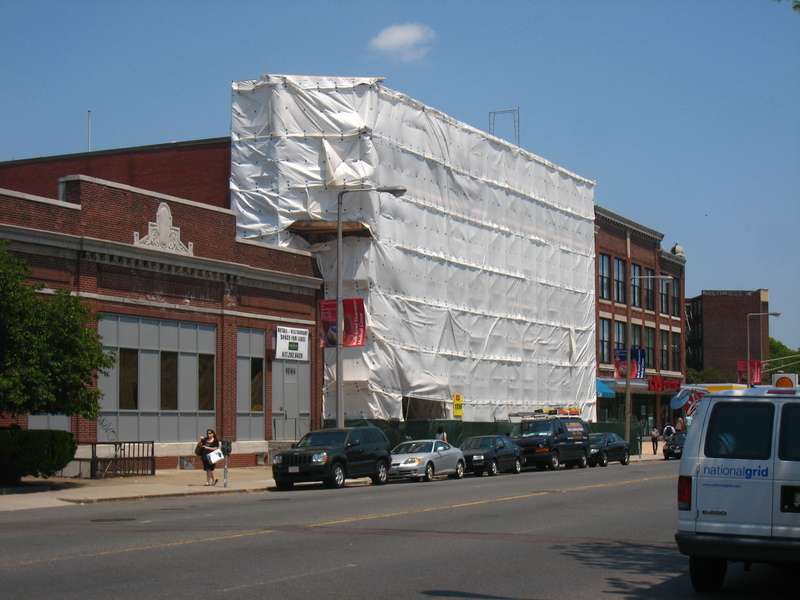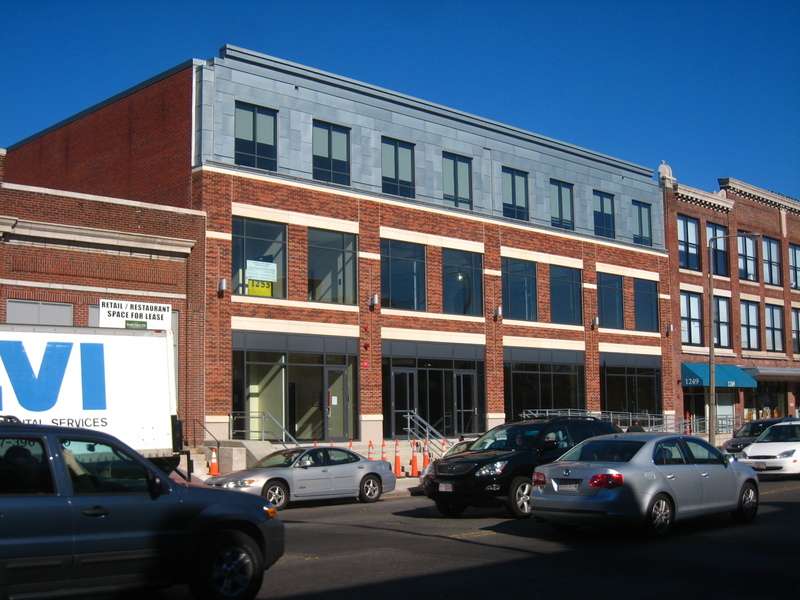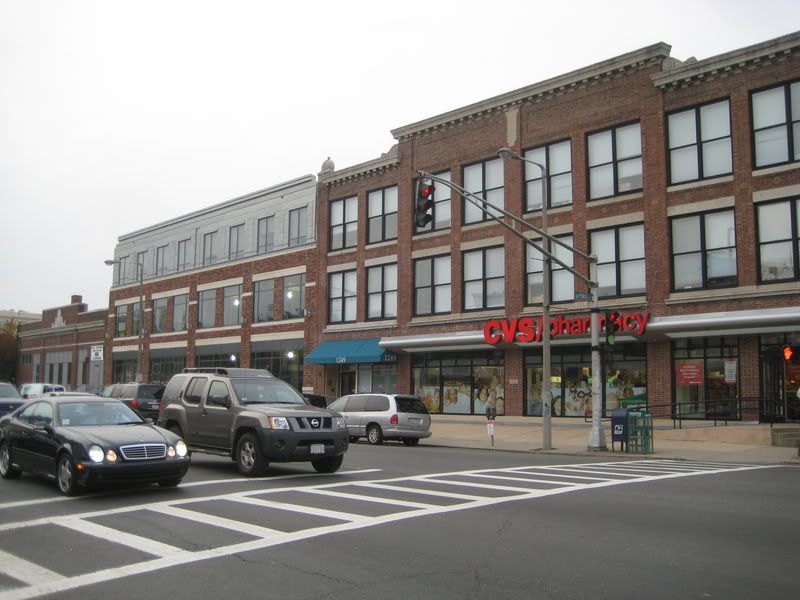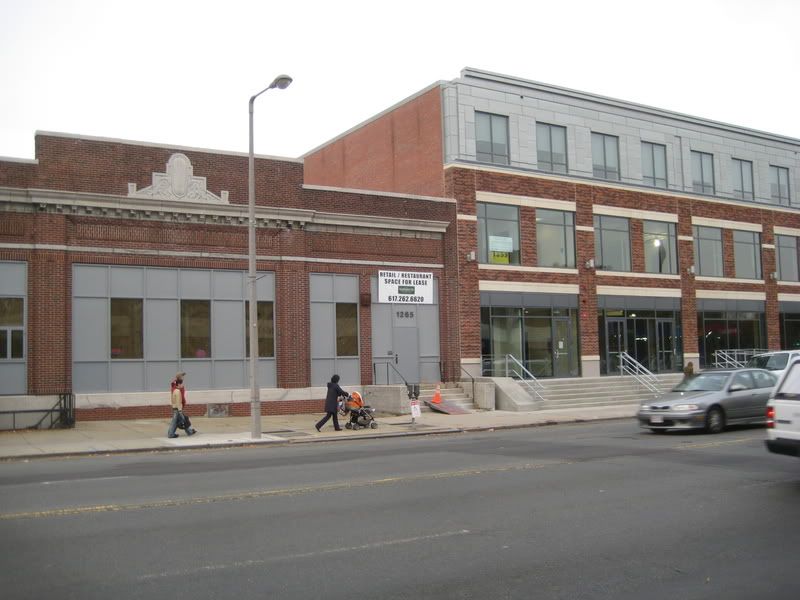What happened to
" Jerry Remy?s Sports Bar & Grill"
?
Jerry Remy's Sports Bar & Grill just got their Licenses.....
License Board's alleged dealings stirring anger
Many liquor applicants say connections required
By Donovan Slack, Globe Staff | October 31, 2008
It was envisioned as a first-class steak house and sports bar just a block from Fenway Park. There would be room for 320 patrons with seating on an expansive outdoor patio lined with greenery. The place would be called Jerry Remy's, after the well-known sportscaster.
All it needed was a liquor license. Not such an easy task, as it turns out. The prospective bar owners applied to the Boston Licensing Board twice in the past six months. They were told there were no liquor licenses available.
Last week, the applicants finally got one - after paying $165,000 on the open market to the previous holder of the license.
It is a typical scenario for many liquor license applicants in Boston, where the pool of licenses is strictly capped. So when federal authorities laid out a much different scenario this week, in which a license at the center of an alleged bribery scandal was promised for free - without a vote or a hearing - in a private meeting at the State House, the reaction from some would-be license holders was perhaps predictable.
"People are real angry about that," said Charlie Perkins of Boston Restaurant Group, a real estate broker who regularly handles the purchase and sale of liquor licenses.
In an FBI affidavit filed with bribery charges against state Senator Dianne Wilkerson, the licensing process in Boston is portrayed as an insider's game, where political considerations can heavily influence Licensing Board decisions and where the right lawyer can push through nearly any application.
The Licensing Board's three plum seats, which by statute are filled by gubernatorial appointment, are occupied by the politically well connected, carry high salaries, and require a light work schedule.
One of the key relationships highlighted by the federal affidavit in Wilkerson's case is between lawyer Stephen V. Miller, a lawyer who frequently represents licensees before the board, and Daniel Pokaski, Licensing Board chairman. According to the affidavit, Miller told an FBI witness that Pokaski had called him to say he had found a liquor license opportunity for the nightclub operator championed by Wilkerson.
"I have one for 'em. I promised it to them and I have one for 'em," according to a retelling by Miller caught on an FBI tape. The Licensing Board subsequently approved a liquor license for the nightclub, even though Dejavu had not secured a lease, normally required for the license award.
Miller was called only an unidentified lawyer in the affidavit; his identity was verified through a review of license application documents. He and Pokaski did not return multiple messages seeking comment this week. Staff members said Pokaski was in Ireland and unavailable - as the storm swirled around his board and subpoenas from the US attorney's office landed in the offices of Mayor Thomas M. Menino; the City Council president, Maureen Feeney; and Councilor Chuck Turner.
An attorney for the Licensing Board, Jean Lorizio, would not say whether the agency also received a subpoena.
The FBI has not charged anyone but Wilkerson with wrongdoing, although the agency has not ruled out further investigation.
While it is unclear whether the insider-deal fixing depicted in the affidavit is an accurate portrayal of business as usual at the board, Boston Licensing Board records show that Miller's firm, McDermott, Quilty and Miller, has a higher rate of winning licenses than other lawyers, according to a review of recent decisions.
During the past six months, the success rate for the firm was 100 percent: two licenses awarded in response to the two applications it filed. It was the only firm without a failed application during a period in which the board rejected 10 of the 17 applications on which it voted.
While racking up excellent success rates, members of the firm are generous contributors to political campaigns. Since 2001, Miller has made more than $33,000 in campaign contributions to Massachusetts elected officials, while his law partner Dennis Quilty has given more than $21,000 to public officials, according to state records.
Quilty could not be reached last night.
The perception of some who have appeared before the board bolsters the notion that some applicants are treated better than others.
"You've got to be pretty well hooked in," said Marshall Newman, a lawyer who said he doesn't often do licensing work and doesn't have the political connections required.
The Boston Licensing Board is a bureaucratic institution that is more than a century old but little known outside the world of bars and restaurants. The stakes are high because the number of liquor licenses allowed in the city is finite - 1,080 - driving up the value for every license. Those for beer and wine can cost $30,000 while those for all types of alcohol can fetch as much as $300,000.
The current members of the board are Pokaski, a former state representative and criminal court clerk appointed in 1993 by Governor William F. Weld; and Michael Connolly, a former secretary of state appointed in 1997 by Governor Paul Cellucci.
A third member, Joseph Mulligan, a former corporation counsel for the City of Boston who was appointed by Weld in 1995, died earlier this year, and Governor Deval Patrick recently appointed Suzanne Iannella to take his place.
Connolly and Iannella, a former City Council candidate, could not be reached.
Board members are paid $85,000 per year for virtually part-time hours. The board chairman is paid $100,000 per year, and he sets his own hours.
While the board chairman must supervise the day-to-day running of the board office, which has a staff of six, the only requirement for the other board members is that they be present at three public hearings each week, on Tuesday, Wednesday, and Thursday mornings.
The board's salaries are significantly higher than last year, when the Legislature passed a bill granting them hefty pay raises.
According to the FBI affidavit, the pay increase is one of the measures Wilkerson held up and used as leverage to extract the liquor license she wanted for the business operator who paid her cash bribes. The FBI affidavit says that a week after the August 2007 State House meeting, during which Pokaski allegedly promised the license, the Senate passed the board's salary bill.
That bill, signed into law by Patrick last year, raised their pay from $60,000 per year to a minimum of $85,000, but it granted authority to Menino to set the actual pay rate - giving the mayor a new measure of influence over the board's operations. Menino signed an executive order in March this year setting Pokaski's rate $15,000 higher.
According to the FBI affidavit, Wilkerson repeatedly called Menino, who agreed to help get a license for Dejavu. Menino denies that, saying he had only one conversation with the senator, and after she asked him for help he sent her back to the Licensing Board. "She was angry," he said.
Despite the practices portrayed in the FBI affidavit - in which board proceedings were characterized by Wilkerson as "all smoke and mirrors" - the board does have supporters who say it is impartial and uninfluenced by politics.
"I always get a fair hearing," said Andrew Upton, chairman of the licensing board in Somerville and an attorney who said he has represented 100 clients before the Boston Licensing Board.
"I hate to lose, but when I've gone before the Boston Licensing Board, when I do lose, I don't blame the referee."
Donovan Slack can be reached at
dslack@globe.com.
http://www.boston.com/news/local/articles/2008/10/31/license_boards_alleged_dealings_stirring_anger/






